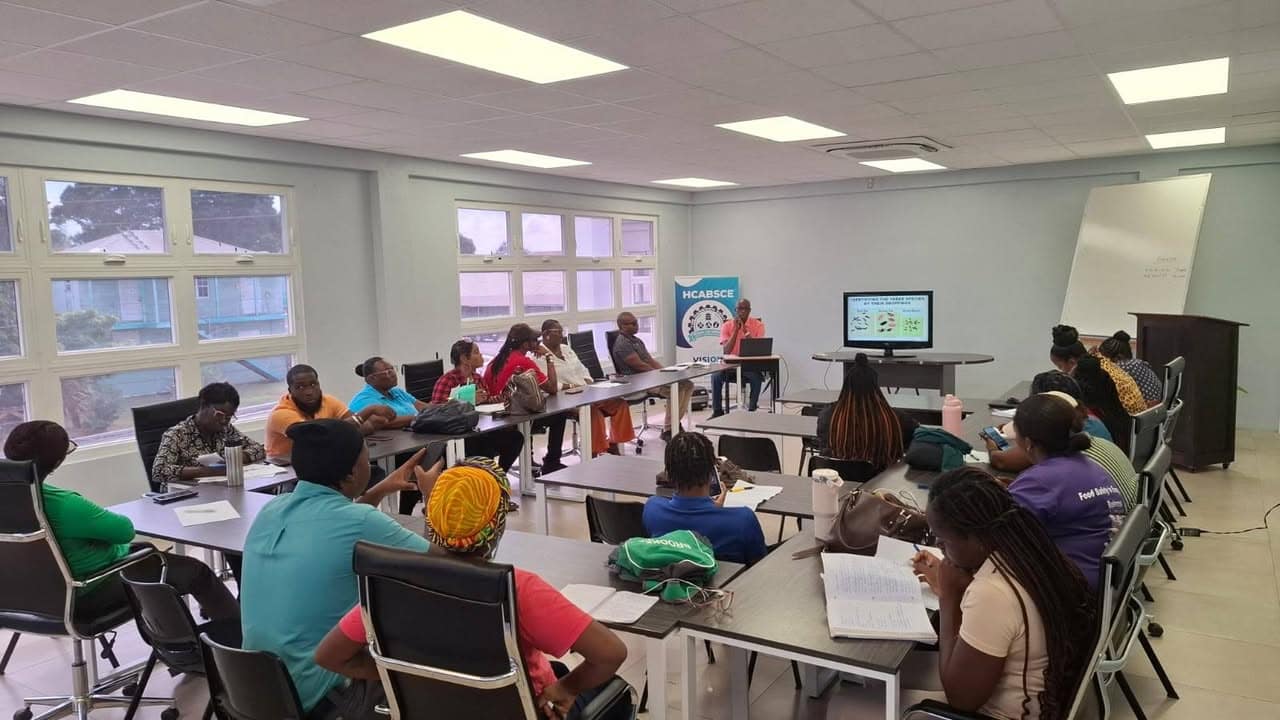

(Epidemiological Surveillance and Disease Prevention workshop concludes in Antigua and Barbuda)
Building Resilient Communities, Integrating Public Health strategies for Vector Control, Epidemiological Surveillance and Disease Prevention in Response to Climate change, was the theme of a two week workshop that concluded recently.
One hundred and fifteen staff comprising of Public Health Inspectors along with Environmental Health aides were trained. Due to the large number of trainees the programme was divided into four segments. Two were reserved specifically for mosquito training sessions which had the largest number of persons.
Facilitator of the training programme was former Chief Health Inspector, Lionel Michael. The event took place at the Harrison Centre in Tomlinson. It was an initiative of the Central Board of Health (CBH) Department; sponsorship was derived from the Organisation of Eastern Caribbean States (OECS) Direct Relief Programme.

The overall focus of the training was vector control and measures which can be utilized to prevent and protect humans as well as communities. Furthermore there are methods which can be used to hinder the expansion of the mosquito population, such as:
Educational- the sharing of information, your right to be informed.
Physical – mosquito nets and insect repellents.
Biological- using fish in water storage containers,

Chemical – insecticides and fogging.
Environmental – sanitation, avoid littering and proper management of wastes.
Further discussions were held regarding the proper use of personal protection equipment (PPEs) along with alternative fogging techniques, studying climatic conditions and temperatures to determine fogging and climate variability as it relates to vector control.
According to Deputy Chief Health Inspector, Daryl Spencer, the purpose for the training was to strengthen capacity in different aspects of vector control; as well as training those who recently joined the establishment without any formal training.
Michael elaborated extensively on the identification of the Aedes Egypti mosquito which is the main cause of dengue fever. Focus was on its characteristic, replication and transmission, the manifestation of the dengue virus infecti
on together with its symptoms.
Latin America and the Caribbean accounts for more than 92% of the dengue cases which are due mainly to climatic conditions. The most common feature of the virus would be (high fevers) of (40°C\104°F) along with headache, pain behind the eyes, nausea or vomiting, rash, pain in the joints, bone or muscle along with swollen lymph nodes. Dengue Fever can be fatal, therefore all control methods must be integrated in the fight against vector borne diseases and the infestation of rats. Destroying mosquito breathing grounds too is paramount.
Additionally, they both noted that everyone needs to take responsibility for their environment; the government cannot do it all, because public health is everyone’s responsibility.
Advertise with the mоѕt vіѕіtеd nеwѕ ѕіtе іn Antigua!
We offer fully customizable and flexible digital marketing packages.
Contact us at [email protected]













